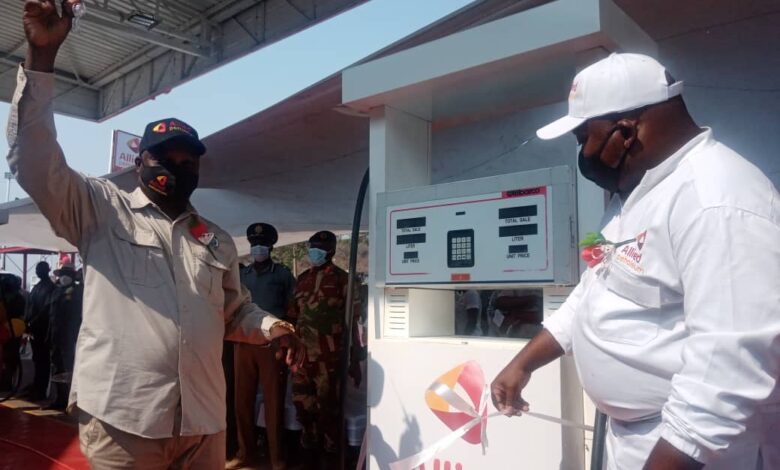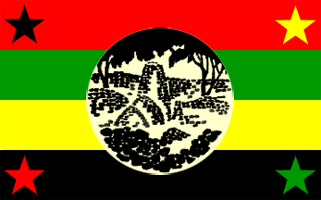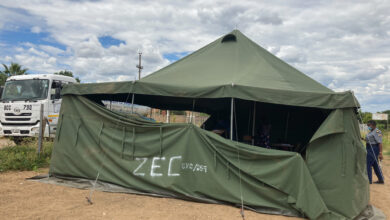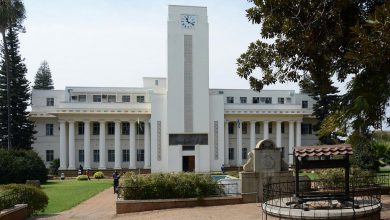Indigenous fuel traders cry foul over unfair policies

By Tinashe Mungazi
Indigenous fuel traders are crying foul over what they say is an uneven and unfair playing field in the energy sector arguing that existing policies were benefiting ‘already’ established corporations.
Traders under the banner, Direct Fuel Imports (DFI) group, castigated some government policies, which they argued were stifling their growth in the energy sector, while they favoured the already established multinationals.
This sentiment comes after a public outcry over the unavailability of fuel sold in local currency with analysts questioning the rationale behind allocating forex to companies serving local consumers.
In an interview with CITE on the sidelines of the official opening of an Allied Petroleum Service Station in Hwange recently, DFI group president, Noma Dube claimed there was an uneven playing field that was choking indigenous members.
“As indigenous players we request that the government makes regulations, requirements or policies that encourage participation of local and small players who can be someone bringing in four trucks of fuel a month into the country. The government has to support local players other than the already established corporations,” she said.
“The requirements we are talking about include licensing and items we need to meet when importing fuel into the country. We don’t have a fair level ground at the moment in the sense the established companies are the ones getting USD allocations from the government. They are paying their duties and levies in RTGS at an interbank rate. This means their cost, built up to the point of a landed cost of a product into the country, is almost half of what we pay as a Direct Fuel Imports group.”
Dube added that companies benefitting from the forex allocation were unscrupulously profiteering and prejudicing the government of foreign currency.
“Right now the Reserve Bank of Zimbabwe (RBZ) governor is having a hard time controlling and monitoring those forex allocations. What you see in the market is USD fuel, even where you even see a sign at a Total service station labelled DFI fuel but they are not members of DFI. These outlets are claiming fuel was brought into the country using free funds, which is a lie,” she noted.
The indigenous player said the expectation was service stations allocated forex should sell in RTGS because the government is subsidizing them import fuel.
“But the reality on the ground is that they are not. As a DFI group we are importing fuel into the country using free funds. We are using our own money but for me to bring in fuel, like petrol or diesel, I will be required to pay a total of 54 cents per litre on duties and levies. While the person using the RBZ allocation facility is importing at around 35 cents on the same duties and levies pegged at the interbank rate of the USD. We all know the rate and the interbank one is very low,” Dube said.
Dube alleged that the government was fleeced of millions of dollars, as multinational companies were benefiting from the auction system but remitting RTGS to the national fiscus.
“This makes the industry uneven and an unfair level that we are trading on yet most of the people that are in the sector are indigenous players. The people that we are seeing getting LCs from the government are those big companies such as Total, Vivo Energy and Puma, who are financial strongholds and have their funds but they are not injecting into this country or investing,” she claimed.
“These big players are supported by our government and bring in fuel to sell in US dollars but don’t want to give the government taxes in US dollars while we indigenous players are giving the government USD from the little that we have. So it’s so unfair for us as the local players,” she said.
Dube also called on the government to give the role of procurement to one of its energy companies in order to monitor distribution.
“We are asking the government to withdraw those LCs, at least they should give them to NOCZIM so that it can procure fuel. Our government has three oil companies – Petrotrade, CMED Fuels and Genesis Energy and if allocated with USD, the government is able to monitor them because how can they monitor Total, Puma or Engen given that these are multinational companies headquartered outside the country,” said the indigenous player.
Allied Petroleum Chief Executive Officer, Tapfuma Chikiti, also appealed to the government to level the playing field to allow growing indigenous companies to thrive while speaking at the ceremony.






